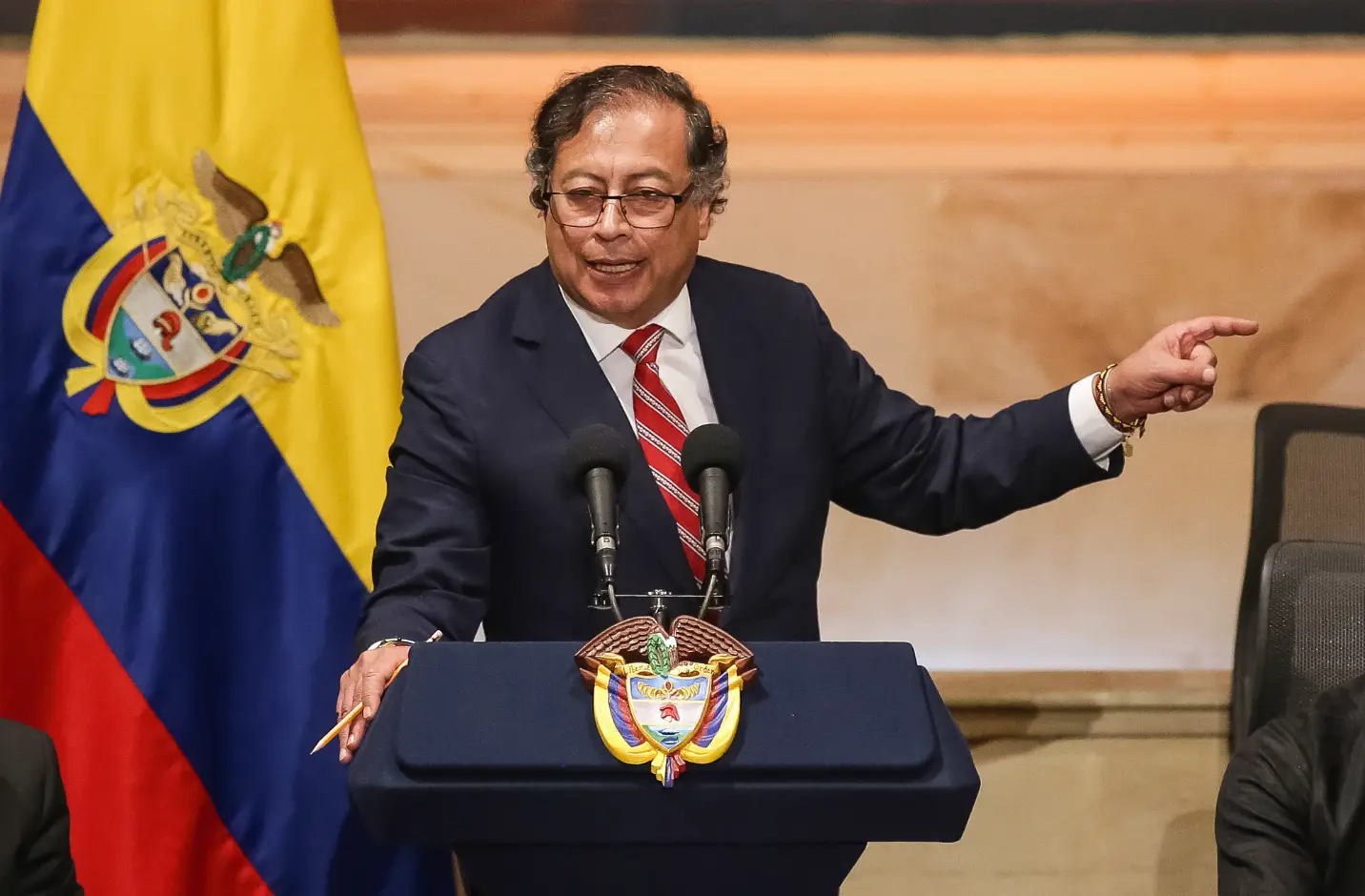In June 2022, Gustavo Petro won the presidency with a message of change, promising to combat corruption and dismantle political clans, even managing to unite the political center around a hopeful narrative. However, nearly three years later, his government has devolved into practices associated with clientelism, polarization, and corruption, relying on alliances with traditional political clans to achieve goals such as labor reform and appointing allies to the Constitutional Court.
To these increasingly strident speeches, one must now add attempts to bypass institutional frameworks. First came the attempt to call for a Popular Consultation (intended to ask Colombians about certain aspects of the labor reform), circumventing the Senate; and second, the threat of convening a National Constituent Assembly (with vague objectives that the president has only described as aiming to “deepen the rule of law”) without involving Congress.
In this context, one could argue that Gustavo Petro has governed through authoritarian practices. It is therefore worth asking whether Colombian democracy is prepared for a president who, convinced he is the voice of the people, is crossing the boundaries of institutional legitimacy.
Indicators of authoritarian behavior
In How Democracies Die (2018), Steven Levitsky and Daniel Ziblatt outline four indicators of authoritarian behavior: the rejection of democratic rules of the game; the denial of the legitimacy of political opponents; tolerance or encouragement of violence; and a willingness to restrict civil liberties of the opposition and the press.
The signing of Decree 0639, known as the Decretazo, marks a milestone in Petro’s authoritarian conduct, as it invoked an exception of unconstitutionality to override a decision by the Senate with which he disagreed. In this case, the president employed a fallacious legal argument to violate the Constitution while also bypassing Law 134 of 1994 by calling for a Popular Consultation.
The president has consolidated his political capital through relentless attacks on those who oppose his views, discrediting business leaders, media outlets, journalists, and opponents using offensive language. This rhetoric has been amplified through his social media platforms and public speeches, as well as the misuse of public media directed by allies such as Hollman Morris, and reinforced by influencers hired within state entities to defend the government and attack the opposition.
Regarding restrictions on civil liberties, the government has harassed media and opposition figures through judicial persecution, a tactic now also being used to intimidate public officials such as National Registrar Hernán Penagos, who in the case of the Decretazo refrained from immediately calling elections for the Popular Consultation.
The “Voice of the People” loses the streets and the polls
On February 14, 2023, six months after taking office, President Gustavo Petro declared from the “People’s Balcony” that the 2022 election signified the return of power to the people. This view, which he has reiterated on multiple occasions, reflects his belief that he is not just another president, but the embodiment of the people — a problematic stance that overlooks the institutional role of the presidency, Congress, and the opposition.
The popularity that initially buoyed his administration has faded, and his government is becoming increasingly unpopular. According to the latest Invamer poll — conducted in Colombia’s six largest cities — 64% of Colombians disapprove of the president’s performance. This marks a sharp contrast to the mere 20% disapproval in August 2022, when he came to power with a more pluralistic cabinet and a more moderate tone.
But it’s not just about the polls — the streets have also shown a decline in credibility. Marches such as the one held on March 18 in support of the government’s social reforms were only possible thanks to public spending aimed at mobilizing attendees. Meanwhile, recent public rallies have been held in smaller venues like the Quinta de Bolívar in Bogotá and La Alpujarra in Medellín, avoiding the embarrassment of events like the one on June 16, 2025, when the attempt to rally support for labor reform at Plaza de Bolívar fell flat.
Institutional response to presidential power abuses
On February 5, 2025, President Petro decided to broadcast a Cabinet meeting on national television for the first time, an event that had, until then, been a confidential space reserved for his ministers. To enable the broadcast on public and private networks, he claimed it was a presidential address. However, on April 15, the Council of State ruled against the Presidency in a tutela (constitutional injunction), ordering a halt to such broadcasts, stating that they violated the right to information, media pluralism, and freedom of information choice.
In line with this ruling, the Council of State also provisionally suspended the so-called Decretazo that convened the Popular Consultation, before Petro ultimately withdrew it. While this can be seen as an abuse of power for attempting to override institutional procedures and circumvent judicial roles, it could also be interpreted as a peculiar form of respect for the rule of law, considering that the president complied with the Council’s decision, despite publicly questioning it.
However, the call for a National Constituent Assembly outside the framework established by the 1991 Constitution and Law 134 of 1994 could mark the breaking point in the authoritarian drift of a president who has squandered his popularity in favor of a populist project. Overriding the Constitution not only risks dismantling the progress achieved in Colombia since 1991 but could also be used to tailor institutions to his liking and pave the way to remain in power. Although Petro has repeatedly claimed he has no interest in reelection, several close allies continue to promote this idea at rallies and on social media. It wouldn’t be the first time the president misleads the public to achieve his goals.
*Machine translation proofread by Janaína da Silva













